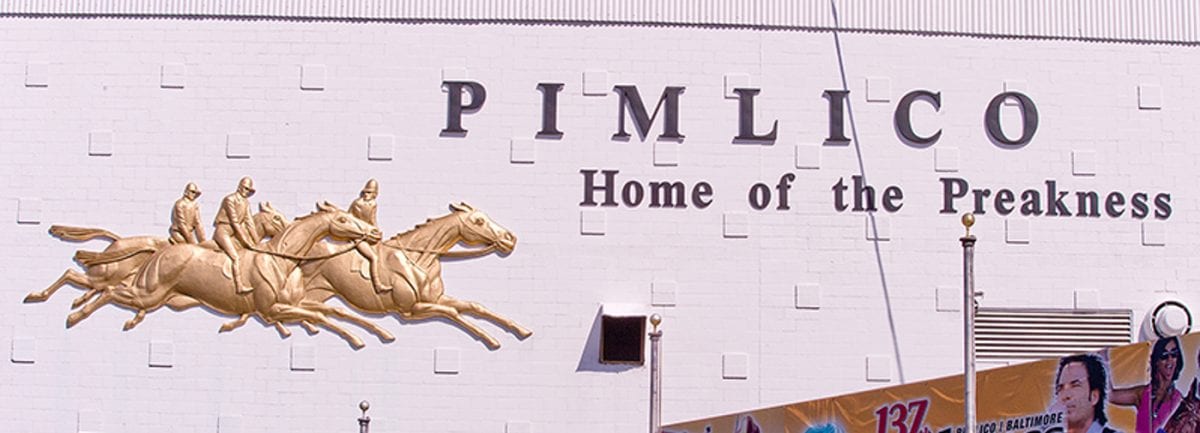On Wednesday, we presented part one of our two-part interview with Maryland racing Commission chairman Bruce Quade (here). Part 2 is here.
Bruce Quade has been chairman of the Maryland Racing Commission for a bit less than one year. In that time, he has helped to broker a 10-year agreement among the tracks, horsemen, and breeders; formed a Breeding Task Force to tackle issues facing that segment of the industry; and confronted a disturbing spate of breakdowns at Laurel Park. He’s also garnered a reputation in the industry as a straight shooter occasionally impatient with the pace of change in the sport. We spoke with him recently on a wide array of topics.
The Racing Biz: We’ve talked a lot about the specifics of what the Commission’s doing so far. Let’s take a step back from that; tell me how you see the Commission’s role overall.
BRUCE QUADE: I think the Commission has an oversight role of all things racing, and it’s incumbent on us to get involved when there are areas we see that need to be drilled down into. I think we have to play a more active role than maybe we once did.
TRB: Why do you think that is?
QUADE: What’s different now is the influx of the slots revenue. The state is almost a new partner in racing because we have to make sure the slots money is used in a way that’s best for Maryland racing. I believe the Governor and the General Assembly have given us the tools and wherewithal to help racing succeed; that’s what we’re trying to do. [pullquote]The state is almost a new partner in racing because we have to make sure the slots money is used in a way that’s best for Maryland racing.[/pullquote]
TRB: If that’s the case, how do you determine when to act?
QUADE: I think that the Commission has to play a proactive role to make sure the industry as a whole is going in the right direction. It has to be savvy in its role and pick the spots where it’s active and can make a positive difference versus those where it sits back.
TRB: Can you give us an example?
QUADE: Sure. For example, I believe we need a bottom-up and top-down review of the whole way we’re conducting racing in Maryland, with the goal of making it economically feasible and safe for participants. That’s an initiative that the Commission has to steer. We wouldn’t want to delegate that; it has to be a joint or collaborative initiative involving the Commission and also the stakeholders. There needs to be a recognition that the Commission has to watch over the best interests of Maryland racing.
TRB: Some of what’s been done recently — particularly the regional medication rules — also have the effect of bringing the mid-Atlantic region closer together in terms of rules and regs. Does that figure into your thinking?
QUADE: Years ago, the states were more independent of each other because there were plenty of horses to go around. People are realizing now that there’s enough money to pay purses, but what you don’t have is enough horses.
TRB: And where do you think the horse shortage leads?
QUADE: The spur towards greater regional cooperation will be a lack of horses rather than a lack of money. [pullquote]The spur towards greater regional cooperation will be a lack of horses rather than a lack of money.[/pullquote]
TRB: What do you think will happen next in terms of regionalism?
QUADE: As I said, there’s just not enough horses to go around in the mid-Atlantic region. So I think there needs to be more of a regional look than a state by state look. But the challenge is, how do you figure out how to slice up the pie?
TRB: Have there been meetings to promote, or at least discuss, increased regional cooperation?
QUADE: There have been no specific meetings so far, only introductory discussions but nothing concrete.
TRB: What else do you see coming down the pike?
QUADE: In the coming months, we’re going to be focused on the installation of a breeding initiative, the adoption of regional medication rules, and the health and safety of horses and riders. Beyond that, we need to begin looking at how we can better promote racing and we need to start the top-to-bottom review of the way we conduct racing in this state.
TRB: For a sport that can be a little bit hidebound, there’s been a lot of change in Maryland racing in the last year, not all of it without some pushback. How do you think this is affecting other stakeholders?
QUADE: I see a renewed spirit of cooperation between the track, the horsemen, and the breeders. There seems to be a commitment to work together, because we’re all in this together.
TRB: And the Commission?
QUADE: I think the Commission’s working extremely well together, and there’s a real commitment to further the momentum that we’ve established.







